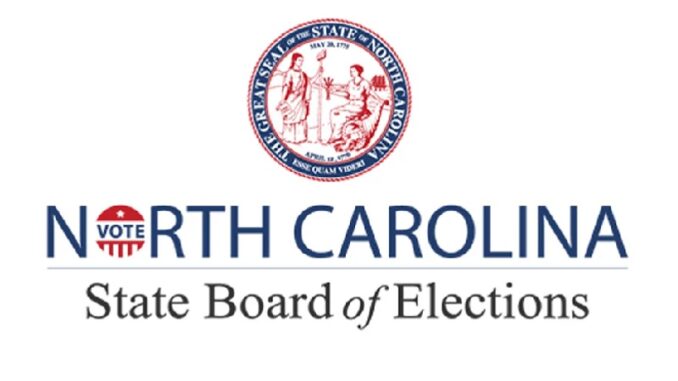
RALEIGH — With the reinstatement of the state’s constitutional amendment requiring voter ID at the polls by the N.C. State Supreme Court last month, the N.C. State Board of Elections is following up by raising awareness of photo ID requirements.
The May 17 N.C. State Board of Elections (NCSBE) release outlines “10 Facts About NC’s Photo ID Requirements” which includes links to the variety of IDs that can be shown at the polls. The photo ID requirement will begin during the 2023 municipal elections this fall.
Accepted forms of ID can be unexpired or expired if that expiration date is less than one year old.
IDs can include a North Carolina driver’s license, a State ID from the NC DMV, a U.S. Passport or U.S. Passport card, or a driver’s license or non-driver ID from another state, District of Columbia, or U.S. territory, but only if the voter has registered in North Carolina within 90 days of the election.
Other forms which the NCSBE says will be available soon include a North Carolina voter photo ID card issued by a county board of elections, a college or university student ID approved by the NCSBE, or a state or local government or charter school employee ID approved by the NCSBE.
According to the NCSBE’s release, they are still developing the process for approving student and public employee IDs for use in voting.
Voters will be asked for their photo ID when they check in to vote and poll workers will verify if the picture on the ID “reasonably resembles the voter.” The address on the photo ID doesn’t have to match the voter’s registration record, but voters will be asked to verify their registered address as they have in past years.
An exception can be made if a voter does not have an accepted form of ID by filling out an “ID Exception Form” or using a provisional ballot. The same exception form is also available for absentee-by-mail voters.
Other permitted exceptions to the voter ID requirement include a reasonable impediment for showing a photo ID such as an ID being lost or stolen, disability, illness, or even lack of transportation to obtain one. Additionally, exceptions also apply to voters with a religious objection to being photographed or having been a victim of a natural disaster within 100 days of Election Day.
